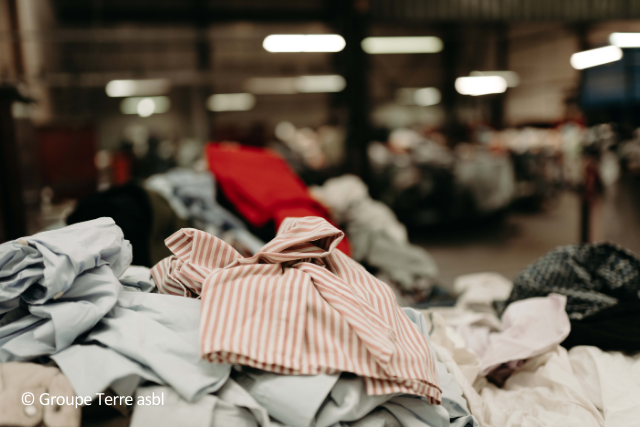Council upholds the recognition of social economy in the Waste Framework Directive but raises new concerns
As Europe’s largest network of social enterprises active in reuse, repair, and recycling, RREUSE welcomes the overall recognition of the social economy in the Council’s General Approach on the Waste Framework Directive. However, some newly introduced provisions would damage the sector, and we urge policymakers to address our concerns and ensure that the final text fully recognises the social economy’s crucial role in advancing the circularity of textiles.
The Council’s decision to maintain all specific provisions related to the social economy from the original proposal by the European Commission is highly positive. The General Approach also takes a stronger stance against fast fashion. Production practices – including the quantity of clothes placed on the market or the frequency of renewal of textile collections – are foreseen as a criterion for the eco-modulation of the Extended Producer Responsibility (EPR) fee. This could serve as a powerful economic incentive to reduce overproduction and promote more sustainable practices in the textile industry.
On the other hand, we are deeply concerned about a provision that allows Member States to request Producer Responsibility Organisations (PRO) to require a contribution from social economy actors engaged in textile reuse. Although the provision is voluntary and the contribution lower than what is requested from producers, it contradicts the principles of cost coverage and polluter pays that should underpin all EPR schemes. Instead of receiving financial support for their reuse activities, social enterprises would be forced to pay contributions for clothes they did not produce. The absence of an impact assessment for this provision further raises concerns about the unintended consequences of this measure on the economic viability of textile reuse carried out by social enterprises.
The lack of commitment to establishing reuse targets and the omission of explicit requirements to involve all stakeholders in the governance of EPR schemes are also disappointing. Without inclusive governance, the expertise of social enterprises and other circular value chain stakeholders cannot be fully harnessed. This increases the risk that EPR schemes will be monopolised by producers, hindering the achievement of higher environmental standards.
Lastly, new reporting requirements foreseen by the Council would significantly increase the administrative burden. In that light we welcome the decision for these requirements to be made lighter for social economy actors.
Edoardo Bodo, Environment Policy Officer, RREUSE: “We appreciate the Council’s acknowledgement of social enterprises’ critical role in textiles management but vital issues remain unresolved. RREUSE will actively engage in the trilogues to ensure the final text fully supports social enterprises in creating a more sustainable and inclusive future for second-hand textiles.”


